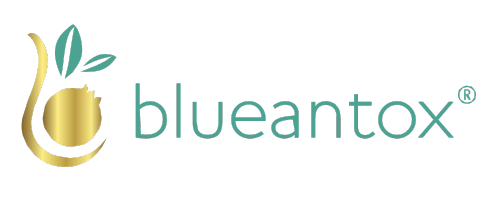One of the nutrients found in wild European blueberries is potassium. Potassium is an important mineral that performs a variety of functions in the body. It is particularly important for maintaining electrolyte balance in the body and plays an important role in regulating blood pressure.
Wild European blueberries contain a moderate amount of potassium compared to other fruits. A cup of wild European blueberries contains about 114 milligrams of potassium. That's about 3 percent of the recommended daily allowance for adults.
It's important to note that potassium is also found in many other foods, such as bananas, potatoes, avocados, and green leafy vegetables. Eating a balanced diet rich in fruits and vegetables can help meet the body's potassium needs.
There are also some studies² that suggest wild European blueberries may have anti-inflammatory effects due to their high antioxidant and potassium content. Inflammation in the body can lead to a variety of health problems, such as arthritis, heart disease, and cancer. Eating wild European blueberries and other antioxidant-rich foods can reduce your risk of these conditions.
Overall, the wild European blueberry is a nutritious and healthy food, rich in potassium and other important nutrients. If you're looking to improve your diet, you may consider incorporating wild European blueberries and other nutrient-dense foods into your meals.
Potassium is an essential mineral for the human body. It is one of the most important electrolytes in the body and plays a crucial role in many processes including the regulation of water balance, muscle contraction and the transmission of nerve impulses. Here are some reasons why potassium is important to the body:
-
Water Balance Regulation : Potassium helps regulate fluid balance in the body by maintaining water balance. It works in tandem with sodium to control fluid balance in the body and regulate blood pressure.
-
Muscle Contraction : Potassium is also crucial for normal muscle contraction. It helps muscles contract and relax, which is necessary to perform physical activity and exercise. Without adequate amounts of potassium, muscles can become weak or stiff.
-
Nerve impulse transmission : Potassium is also an important factor in the transmission of nerve impulses in the body. It helps in the excitation and transmission of signals between nerve cells, thus supporting many bodily functions including muscle movement, sensory perception and cognitive functions.
-
Regulating Blood Pressure : Potassium may also help regulate blood pressure. It acts as a sodium antagonist and helps lower blood pressure by removing excess sodium from the body and relaxing blood vessels.
-
Bone Health : Potassium may also play a role in maintaining bone health. It can help reduce the loss of calcium from the bones, which is important for maintaining bone strength.
-
Metabolic regulation : Potassium is also important for regulating metabolism in the body. It plays an important role in converting nutrients into energy and in regulating blood sugar levels.
These are just a few reasons why potassium is important to the body. It is important to eat a balanced diet with adequate sources of potassium to ensure the body is functioning at its best. Good sources of potassium are B. bananas, avocado, potatoes, spinach and beans.
In the human body, potassium is also referred to as a cation, since it occurs primarily in the intracellular space in the form of K+ ions. It is a vital electrolyte that is important for a variety of bodily functions such as regulating heart rhythm, maintaining fluid balance and muscle contraction.
The problem that potassium solves in the body is that it helps regulate blood pressure and reduces the risk of stroke and heart attack. It also plays an important role in muscle contraction, including that of the heart, as well as nerve function and enzyme activation. Potassium also helps rid the body of excess sodium, which is important for regulating fluid balance in the body.
A lack of potassium can lead to a variety of symptoms, such as fatigue, weakness, muscle cramps, constipation and abnormal heart rhythms. However, excess consumption of potassium can also lead to problems, especially those related to kidney dysfunction.
It's important to eat a balanced diet that includes adequate potassium and other important nutrients to ensure optimal health. A healthy diet rich in potassium includes fruits like bananas, oranges, and avocados, vegetables like spinach and potatoes, and fish and poultry. In some cases, it may also be necessary to take potassium supplements to provide the body with enough potassium. However, it's important to consult a doctor before taking potassium supplements, as too much potassium can be dangerous.
² https://academic.oup.com/advances/article/11/2/224/5536953?login=false










